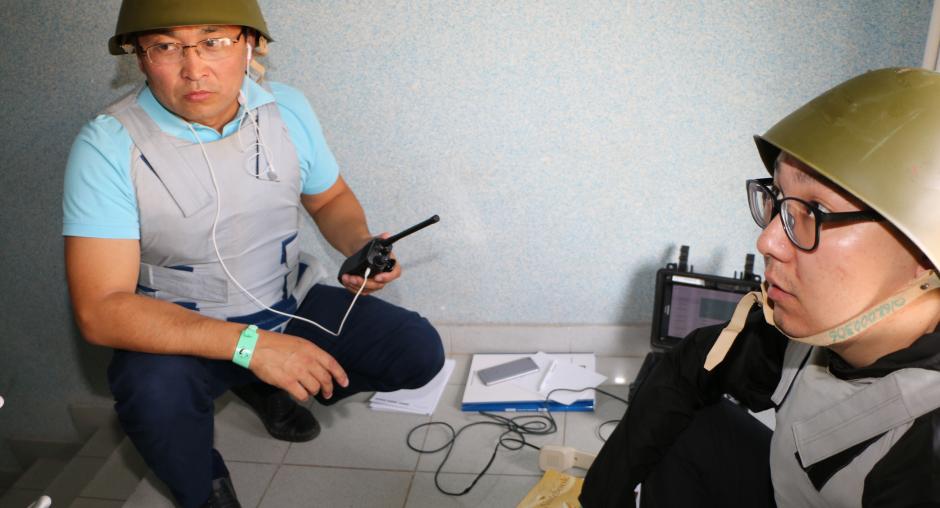OSCE supports training course for crisis negotiators in Kazakhstan

Strengthening the capacity of crisis negotiators from across Kazakhstan was the focus of a five-day training course held from 16 to 20 July 2018 in Koschi, Kazakhstan. The event was organized by the OSCE Programme Office in Astana, the Embassy of Israel in Astana and the Ministry of Public Security of the State of Israel, together with the Law Enforcement Agencies Academy under Kazakhstan’s Prosecutor General’s Office.
The course was led by experts of the Israel Police to prepare state officials to respond to crisis situations such as hostage taking and manage the negotiation process from start to finish. Topics included active listening, operative reaction, structure of negotiation groups, time management, the tactical role of intelligence in negotiations, means of communication, third-party intermediaries and organizing a co-ordinated response. These sessions were complemented by technical discussions and simulated exercises based on real-life cases that the Israel Police had dealt with in the past.
Diana Digol, Deputy Head of the OSCE Programme Office, said: “A safe and efficient response to a crisis situation often requires a group of professional negotiators. Through co-operative training seminars such as this, government agencies will be better prepared to serve and protect the public in such situations. The OSCE stands ready to help other law enforcement agencies to build capacity in emergency response and public safety.”
Michael Brodsky, the Ambassador of the State of Israel to the Republic of Kazakhstan, said: “Israel has a huge amount of experience in fighting against terror and in negotiations in emergency situations. We are ready to share this experience with other countries. This training course with the participation of Israeli experts is being held in Kazakhstan for the first time, and it indicates a high level of relations between our two countries.”
Shakir Shayahmetov, the Acting Rector of the Law Enforcement Agencies Academy, discussed the importance of state authorities learning from other countries and the need for the course participants to share their lessons learned with colleagues in the areas where they serve.
The event was part of the OSCE’s work on countering violent extremism and radicalization that lead to terrorism.
